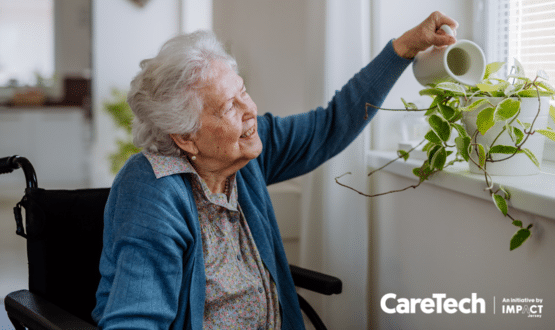GSM Doorbell opens up access to carers
- 8 May 2007
Wireless specialists Waleli are launching a GSM Doorbell product in the UK which reduces response time for emergency calls to house-bound patients.
GSM Doorbell is a mobile phone application that allows people to answer their doorbell, talk to visitors and even open the door – whether they are at home or not.
As it has the ability to allow remote access, the GSM Doorbell can boost emergency response times to elderly people who live in their own home or in sheltered housing.
It allows nurses and care workers to go straight to the scene without first having to go to a central key-holding facility to collect a front door key.
The system works by responding to an alarm-call made through a personal alarm system.
The regional call-centre will immediately remotely activate the GSM Doorbell, so that when the nurse or care worker arrives and rings the bell at the patient’s home, a voice connection is made with the call centre.
This will allow the nurse or care worker to identify themselves. The call centre can then open the front door with the press of a button and the care worker can provide the necessary care to the patient.
Local housing authorities and providers of sheltered accommodation for the elderly are among the target audiences for the GSM doorbell in the healthcare arena, and the system is expected to be released by the end of this year.
Waleli is releasing the product internationally after successful deployment in the Netherlands. The company will be targeting Europe first, as it is the continent which is going to have the oldest population, according to UN forecasts for 2005-2050.
Waleli’s head of international business development, Lawrence Masle, said: “The ageing population is one of the most important issues facing society today. We all have to get much smarter about how we support elderly people, many of whom wish to continue living in their own homes. The GSM Doorbell answers the needs of a person who wishes to live alone but seeks the reassurance of knowing help can reach them if necessary.
“We’re starting in the UK first, due to the cultural openness of using wireless technology in daily life. However, we expect that interest will grow quickly throughout the country and further across the continent, as residents become conscious of the advantages of connecting their front door to their mobile phone.”
When the householder is at home and doesn’t need the GSM mobile functionality, the GSM Doorbell can be switched to normal doorbell mode with a single key push.
The system was trialled by the AtA foundation, who manage emergency call centres in Amsterdam. Nurses were able to respond more quickly to calls from home patients, by pressing the GSM Doorbell and seeking permission from the operator to open the door.
AtA chief executive, Ger Tit, said: “We see the GSM Doorbell as a product that enables care givers to provide assistance without losing valuable time. The increase in quality, and cost reduction around the administered care go hand in hand.”
Further information can be found in a short film on Waleli’s web site: http://www.waleli.com/content/Movies/GSM-doorbellHeathcare.wmv




